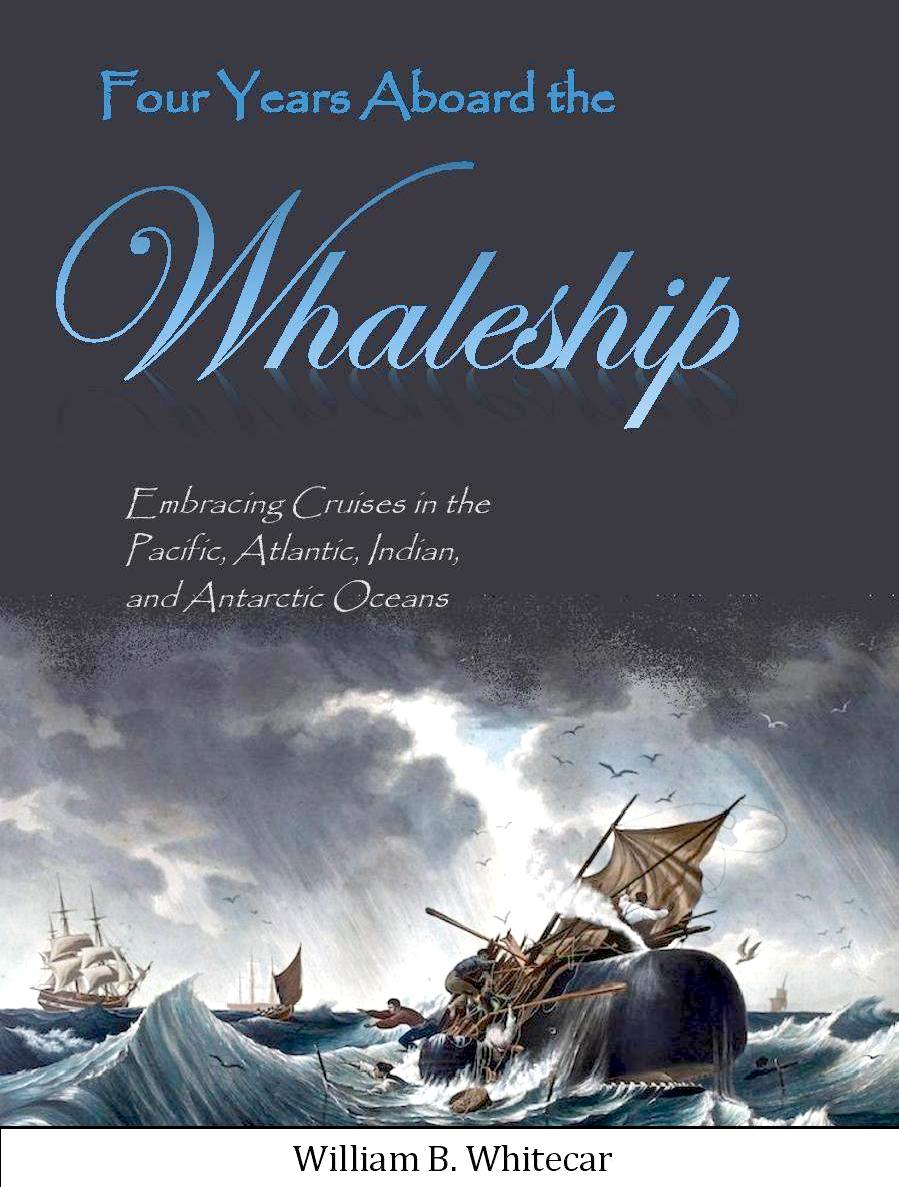
The
depiction of a Moby Dick type sperm whale on this cover is near
identical to the Owen Chase "Wreck of the Whaleship Essex"
cover below. What came first? We suspect that the success of Moby Dick
adaptations inspired these scenes. Alternatively, they may have inspired
Herman Melville. They have inspired us.
Four Years Aboard the Whaleship: Embracing Cruises in the Pacific, Atlantic, Indian, and Antarctic
Oceans (1864).
It's not exactly a concise title, but then who hasn't been faced with
the dilemma of choosing a catchy name and leaving out information that a
reader might appreciate in deciding to purchase a work.
This book offers a vivid picture of life at sea, as well as observations on locations on land that the ship passed or stopped at, including the Azores, Madagascar, Australia, New Zealand, and numerous islands in the Pacific.
William B. Whitecar's 1864 book "Four Years Aboard the Whaleship" is a first-hand account of a voyage to the
Antarctic
Ocean, South Atlantic and
Indian
Oceans in search of the sperm and right whales.
William B. Whitecar, Jr., was a Philadelphian who signed on as a common sailor on the
New Bedford whaler Barque Pacific. His book is based on a detailed journal, which he kept, as he explains in his preface, “at sea, on a sailor’s chest, amongst seamen, by night and by day, amid storm and calm….”
The book offers a vivid picture of life at sea, as well as observations on locations on land that the ship passed or stopped at, including the Azores, Madagascar, Australia, New Zealand, and numerous islands in the
Pacific.
Written just a few years after Herman
Melville’s literary classic of 1851, Moby-Dick: or The Whale, the book touches upon many of the same topics and themes that Melville covers in his great work of fiction: the long hours at sea, the diversity of the
whaling crews and the international character of the whaling industry, “gammoning” with other whaleships at sea, the dangers of the hunt, and the death of fellow crewmen at sea.
In describing a "man overboard" rescue, he witnessed Whitecar writes:
"He was so weak as to be unable to clamber from the boat up the side. On stepping from the rail to the deck, he was welcomed as one restored from the dead, and, after many assurances that he was all right, except a slight weakness, the excitement began to subside. None but those who have experienced it, can imagine the effect produced by the cry of 'Man overboard,' on every hearer; and to us, who had lived for more than a year together, seeing and conversing with each other every hour in the day, all depending on the same fabric for shelter against the storm and wave, it came with a ten-fold force — aa none knew whose turn it next might be."
Whitecar's account includes observations of the local inhabitants of the wild regions in which the whaleship docked to replenish supplies, including fishing practices:
"I saw the natives spearing fish, an art in which they displayed considerable skill. Wading in the
water, and patiently watching until the prey swam near them, they would expertly strike in their spears and transfix it. I saw one of them thus encounter a shark, piercing him through and through, until he despatched the monster. During the whole conflict he displayed extreme adroitness and activity in keeping out of the way of the infuriated creature, when with gnashing jaws it turned upon its antagonist."
Desertion was always a possibility, but was not always a great idea, as Whitecar relates:
"On the second liberty-day, given to the larboard watch, Kedge Anchor took French leave and fled to the bush for concealment. For some days we saw nothing of him; but, after a week's absence, he was at the beach, very anxious to get aboard on any conditions. He returned miserably filthy and covered with vermin; his clothing almost gone, and what he had left was all of one color, from wallowing in his various sleeping places. Whilst ashore, he was under the guidance of a fellow, who, by flaming accounts of the condition of the country, induced him to desert, intending to apply to our captain for his berth. On Kedge's return, he was greeted with laughter…."
In his concluding chapter, under the heading “Advice to Landsmen,” the author concludes, perhaps somewhat tongue in cheek, by “advising all young men who can gain a livelihood ashore, to stay at home.” As arguments against whaling, he cites the low pay (a dollar a month, after expenses are deducted and the gains from the sale of the barrels of oil apportioned among the crew and ship’s owners), and the drudgery of much of it.
This book, published in
1864, did not inspire
Herman Melville to write
Moby-Dick,
more the other way around.
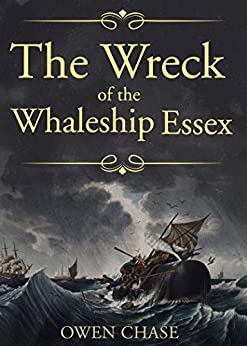
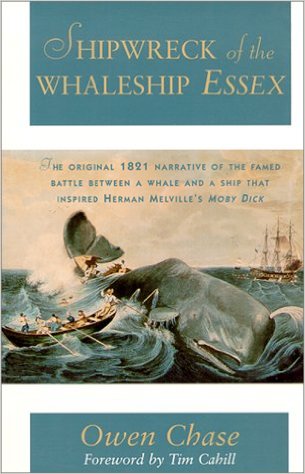 .
.
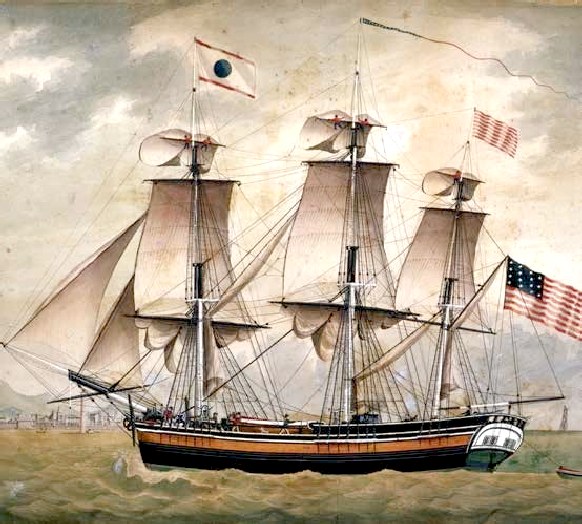
The number of accounts of sinkings of whaling ships by
large sperm whales, is sure to have influenced Herman Melville in the
writing of Moby Dick, finally ending with the sinking of the Ann
Alexander in 1851. In turn these events must have played on the mind of
sailors turned writers such as William Whitecar and Thomas
Beale, and
grateful we are for that, for putting pen to paper so that we might
enjoy their experiences.
POPULAR CULTURE
Herman
Melville's classic book, that undoubtedly was read by many a sailor,
was later turned into a feature film starring Gregory Peck as Captain
Ahab and the crew of the Pequod
who were fated to be killed by the giant white whale Moby Dick.
Owen
Chase was the forerunner of such writings, published in 1821, with
shipmate Thomas Nickerson failing to
publish, but at least savings his notes for later verification.
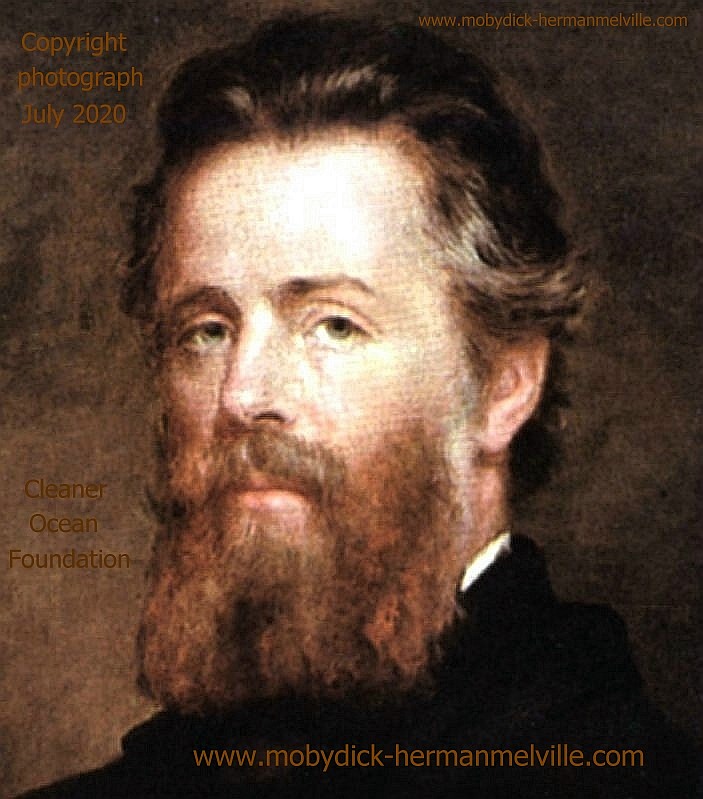
Herman
Melville was the author of a story about what we'd now consider an illegal activity,
the commercial hunting of whales for oil and meat. Whaling is still
carried out by Japan, Iceland and Canada, among other nations, though
most nations voluntarily abstain in the interests of conserving the
magnificent animals - as per International
Whaling Commission guidelines.
Please use our
A-Z INDEX to
navigate this site


 .
.
